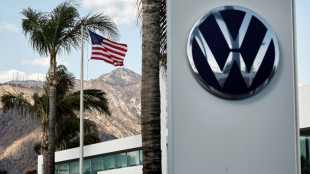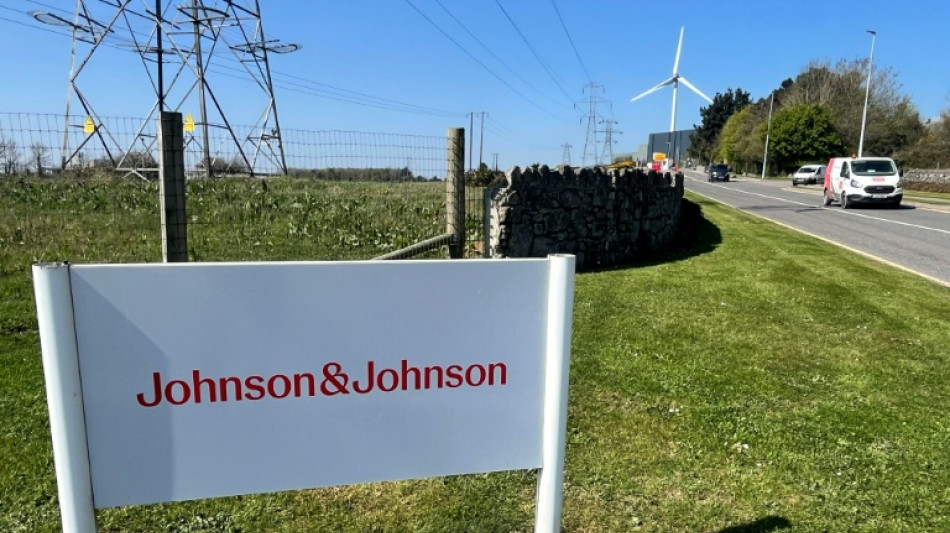
-
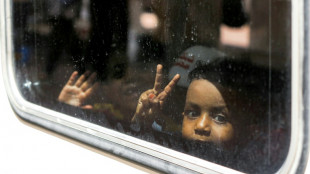 Hundreds of Sudanese refugees in Cairo take up chance to return home for free
Hundreds of Sudanese refugees in Cairo take up chance to return home for free
-
Tinubu receives Nigerian women's team after Africa Cup victory

-
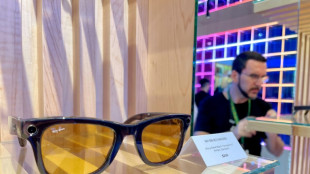 AI Ray-Ban Meta glasses help EssilorLuxottica boost sales
AI Ray-Ban Meta glasses help EssilorLuxottica boost sales
-
Thailand and Cambodia truce agreement comes into effect
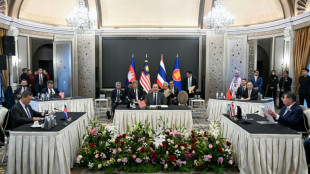
-
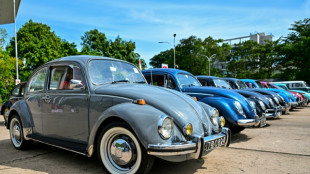 Europe's carmakers still nervous despite EU-US trade deal
Europe's carmakers still nervous despite EU-US trade deal
-
China aims for 'reciprocity' in trade talks with US
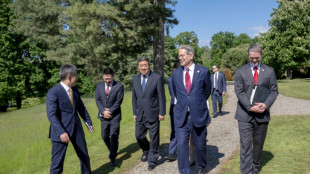
-
 Veteran Vos takes Tour de France yellow after Wiebes stage win
Veteran Vos takes Tour de France yellow after Wiebes stage win
-
Trump warns of 'real starvation' in Gaza as aid deliveries pick up

-
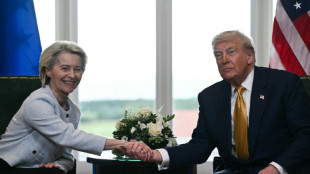 EU defends Trump trade deal in face of backlash
EU defends Trump trade deal in face of backlash
-
England's Lionesses return to heroes' welcome after Euro 2025 glory
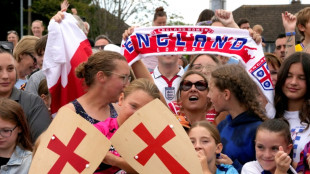
-
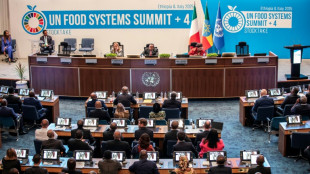 Hunger must never be 'weapon of war', UN chief tells Africa food summit
Hunger must never be 'weapon of war', UN chief tells Africa food summit
-
Heineken shares plummet as beer sales dry up
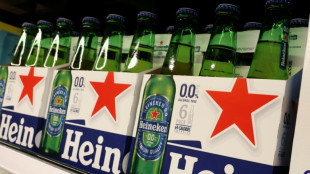
-
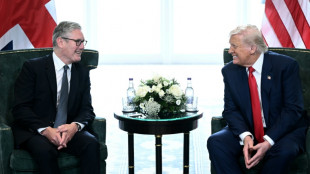 Trump slashes Russia ultimatum to '10 or 12 days'
Trump slashes Russia ultimatum to '10 or 12 days'
-
Landslide kills four as rains lash northern China
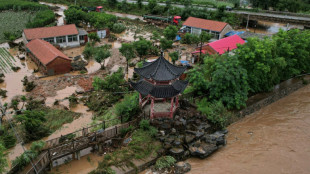
-
 Telegram's Durov questioned in France over alleged illegal content on app
Telegram's Durov questioned in France over alleged illegal content on app
-
Home from home: Trump showcases his resorts in golf diplomacy
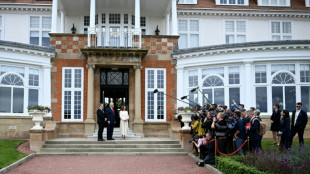
-
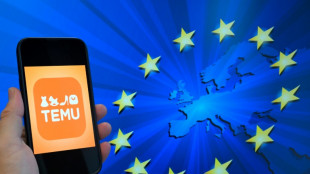 EU accuses online giant Temu over sale of 'illegal' products
EU accuses online giant Temu over sale of 'illegal' products
-
'No alternative' to two-state solution for Israel, Palestinians

-
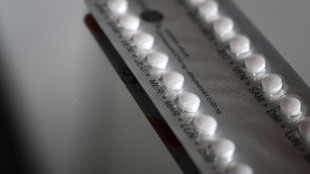 US plan to destroy contraceptives sparks uproar
US plan to destroy contraceptives sparks uproar
-
Turkey battles wildfires as heatwave grips Med
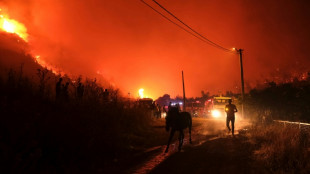
-
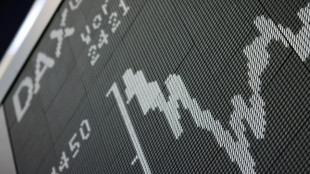 Dollar rises on EU-US trade deal but European stocks turn sour
Dollar rises on EU-US trade deal but European stocks turn sour
-
Thai-Cambodia evacuees hail truce news with mixed emotions

-
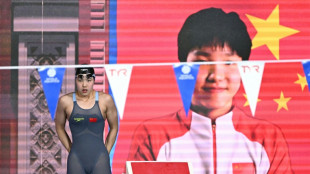 Rivals laud 'phenomenally talented' 12-year-old swim sensation
Rivals laud 'phenomenally talented' 12-year-old swim sensation
-
Major Israeli rights groups brand Gaza campaign 'genocide'
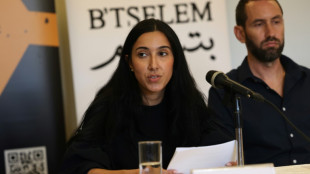
-
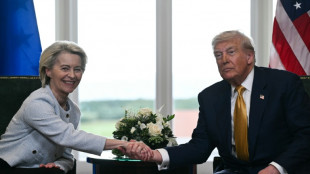 EU defends Trump trade deal facing backlash
EU defends Trump trade deal facing backlash
-
McIntosh wins again at swimming worlds as Yu, 12, just misses out
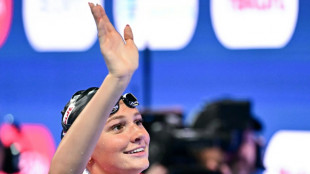
-
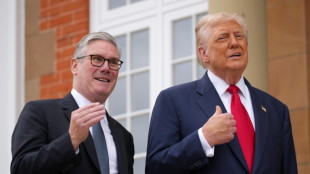 Trump says Gaza ceasefire 'possible' amid Starmer talks
Trump says Gaza ceasefire 'possible' amid Starmer talks
-
McIntosh wins second Singapore gold, China prodigy Yu fourth

-
 'Fragile' Walsh defies illness to win butterfly world gold
'Fragile' Walsh defies illness to win butterfly world gold
-
Hunger must never be 'weapon of war': UN chief
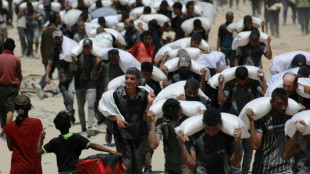
-
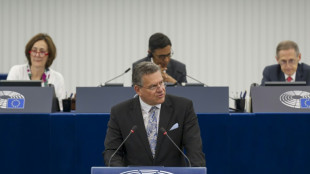 Brussels says EU-US deal 'better than trade war' with Trump
Brussels says EU-US deal 'better than trade war' with Trump
-
Three things we learned from Belgian F1 Grand Prix

-
 Walsh defies illness in US camp to win butterfly world gold
Walsh defies illness in US camp to win butterfly world gold
-
Qin beats Olympic champ Martinenghi for 100m breaststroke world gold
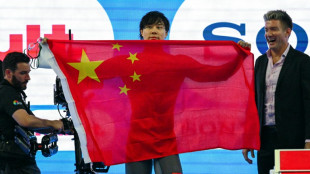
-
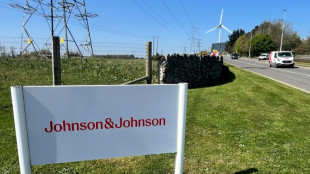 Ireland's 'economic miracle' at risk from tariffs
Ireland's 'economic miracle' at risk from tariffs
-
Stock markets, dollar rise on EU-US trade deal
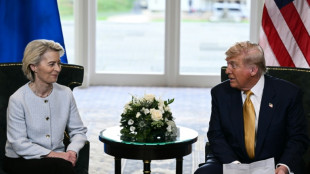
-
 England's Lionesses head home to party after Euro glory
England's Lionesses head home to party after Euro glory
-
Philippine flooding centre stage at Marcos state of nation speech

-
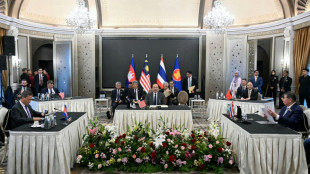 Thailand and Cambodia agree truce after five days of fighting
Thailand and Cambodia agree truce after five days of fighting
-
Israeli settlers attack West Bank Christian village
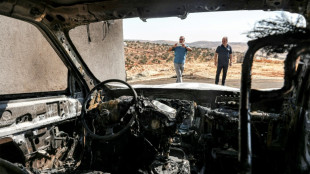
-
 Food arrives in Gaza after Israel pauses some fighting
Food arrives in Gaza after Israel pauses some fighting
-
Starmer to press Trump on Gaza, trade in Scotland talks
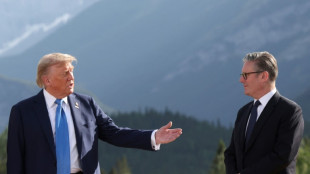
-
 Jamie Overton added to England squad for fifth Test against India
Jamie Overton added to England squad for fifth Test against India
-
China to offer childcare subsidies in bid to boost birth rate
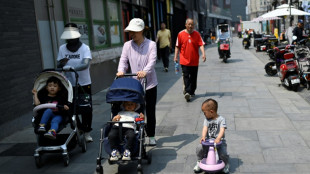
-
 Artists, scientists breathe life into prehistoric woman
Artists, scientists breathe life into prehistoric woman
-
Iconic French chef stakes reputation on vegan menu
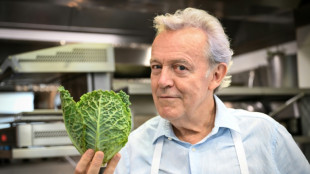
-
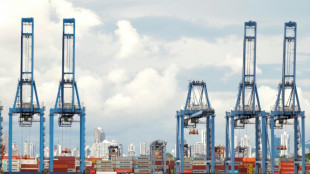 CK Hutchison eyes 'major' Chinese investor for Panama ports deal
CK Hutchison eyes 'major' Chinese investor for Panama ports deal
-
China hopes for 'reciprocity' at trade talks with US in Stockholm
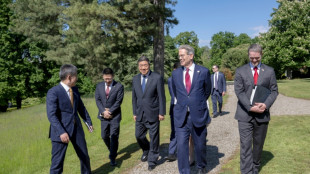
-
 England's remarkable Euro 2025 success a triumph for 'incredible' Wiegman
England's remarkable Euro 2025 success a triumph for 'incredible' Wiegman
-
Four killed in landslide as heavy rain drenches northern China
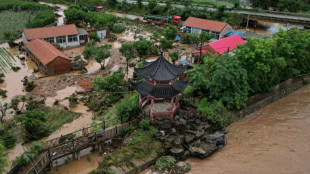
| BCC | -1.04% | 87.23 | $ | |
| SCU | 0% | 12.72 | $ | |
| RIO | -1.63% | 62.09 | $ | |
| JRI | -0.58% | 13.015 | $ | |
| BCE | -1.17% | 23.92 | $ | |
| NGG | -2.73% | 70.23 | $ | |
| CMSD | 0.06% | 22.903 | $ | |
| RBGPF | 0% | 75 | $ | |
| CMSC | 0.02% | 22.49 | $ | |
| GSK | -1.43% | 37.435 | $ | |
| AZN | -1.24% | 71.77 | $ | |
| SCS | 2.17% | 10.815 | $ | |
| RYCEF | 0.38% | 13.2 | $ | |
| BTI | -1.33% | 51.565 | $ | |
| BP | 0.89% | 32.49 | $ | |
| VOD | -2.65% | 11.135 | $ | |
| RELX | -1.78% | 51.81 | $ |

Ireland's 'economic miracle' at risk from tariffs
The deal between the United States and the European Union may have averted a transatlantic trade war, but worries persist in Ireland where crucial sectors are dependent on US multinationals.
Attracted primarily by low corporate taxes, huge pharmaceutical firms like Pfizer, Eli Lilly, and Johnson & Johnson, and tech giants like Apple, Google, and Meta have based their European headquarters there.
The US investor influx has boosted Irish tax coffers and fuelled record budget surpluses in recent years.
But Trump's tariffs -- a baseline rate of 15 percent on EU exports will apply across the board -- present a stress test for the Irish economic model.
Once one of western Europe's economic laggards, Ireland became known as the "Celtic Tiger" thanks to a remarkable turnaround in the 1990s.
A model built on low corporate tax and an English-speaking workforce in an EU country proved seductive to foreign investors, particularly from the US.
Their presence drove rampant economic growth and would later help Ireland rebound from the financial crash of 2008.
The transition was an "Irish economic miracle," said Louis Brennan, professor of business studies at Trinity College Dublin.
"Ireland has advanced in a matter of decades from being one of the poorest countries of northwestern Europe to being one of the most prosperous," he told AFP.
Last year Ireland hiked its corporate tax rate from 12.5 to 15 percent after pressure from the Organisation for Economic Co-operation and Development (OECD), but still anticipates a budget surplus of 9.7 billion euros for 2025.
Ireland's "spectacular" transformation "may have been too successful because we are very dependent in many ways on American companies," says Dan O'Brien, director of the IIEA think tank in Dublin.
- Pharma in frontline -
Spared from the first round of Trump's tariffs, pharmaceutical companies are now being targeted by the American administration, keen to repatriate production to home soil.
Earlier this month the US president threatened a 200 percent levy on the sector.
Irish Prime Minister Micheal Martin expressed mixed feelings at Sunday's 15 percent deal, welcoming that "punitively high tariffs" were avoided.
But "higher tariffs than there have been" will make transatlantic trade "more expensive and more challenging," he added.
The new 15 percent levy sealed will be "particularly unwelcome in Ireland," O'Brien told AFP.
"The pharmaceutical industry is very large relative to the size of the economy, and in recent times around half of its exports have gone to the United States," he said.
Pharma employs about 50,000 people and accounted for nearly half of Irish exports last year, reaching 100 billion euros, up by 30 percent year-on-year.
"Ireland's problem is that it is uniquely integrated into the United States economy," said O'Brien.
"There's no other European country like this. So Ireland is caught in the middle," he said.
Large pharmaceutical companies, particularly American ones, also host certain patents in the country to reduce their tax burden, which then boosts the Irish tax take.
Tariffs "risk strongly discouraging American companies from setting up their future factories in Ireland," said Brennan.
The US could still decide to impose further tariffs on the sector following an ongoing probe into whether pharmaceutical imports pose a national security problem, he said.
Tech firms with EU bases in Dublin who have also transferred part of their intellectual property rights will not be directly impacted by the imposition of tariffs on physical goods.
The sector is also a "significant area of investment and employment for Ireland, but at least from a US perspective, it seems outside the scope of the tariffs," said Seamus Coffey, an economics professor at University College Cork.
Beyond tariffs, tech could be affected if the United States decides to modify its tax regime to make it less attractive to set up in low-tax countries, said Andrew Kenningham, from Capital Economics.
W.Mansour--SF-PST

